How to defeat the ‘unseen disadvantage’ for students from non-traditional backgrounds.

Law schools are often seen as gateways to prestigious careers, yet they can also be alienating environments for students from non-traditional backgrounds. These students face challenges that aren’t immediately obvious to their peers or even their tutors. Addressing these hidden disadvantages is crucial to fostering genuine diversity and inclusion in the legal profession.
For many students from non-traditional backgrounds, entering a law school classroom can feel like stepping into an exclusive club where others seem to have an unspoken advantage. Conversations about networking events and internships often create an immediate divide. The environment itself can seem built on an expectation of prior exposure to the legal world, which many students from non-traditional backgrounds may lack.
Feeling Like an Outsider
These students often find themselves in environments where peers appear more confident and well-connected. Many have stories of recent internships or legal experiences, and their ability to navigate the academic setting seems effortless. Differences in communication styles, confidence levels, and professional exposure can amplify feelings of being out of place.
In class, the atmosphere often fosters competition over collaboration. Participation may feel less about shared learning and more about individual performance. This culture can be alienating for students who are less familiar with such competitive environments. While they may possess exceptional commitment and ability, these students often hesitate to assert themselves, which can lead to a cycle of disengagement and isolation.
The Impact of Competitive Environments
The competitive nature of traditional law schools can exacerbate feelings of inadequacy, even for students performing well academically. The perception of falling behind—even when it is not the case—can undermine confidence and discourage active participation.
Such environments often fail to nurture inclusion or engagement. Instead, they reward those who already know how to navigate the system—a system unintentionally biased against students from diverse backgrounds. The cumulative effect of feeling unheard, unsupported, or out of place creates an unseen disadvantage that hinders their progress.
Why It Matters
Fixing diversity in law firms requires starting at the source: education. True diversity in the legal profession cannot be achieved if the educational pipeline filters out talent through alienating environments. Scholarships and outreach programs are important but insufficient. The structure and culture of legal education need to evolve.
The Freedom Law Clinic addresses these challenges by creating inclusive educational environments. Law schools should empower students from the moment they enter. Classrooms must foster communal learning, where students support each other’s professional growth rather than compete to stand out. By doing so, the full potential of every student can be unlocked.
Building Inclusive Classrooms
Creating inclusive classrooms involves rethinking how legal education is delivered. This includes:
- Shifting the Focus to Collaborative Learning: Classrooms should prioritize teamwork, group projects, and open discussions to promote a sense of community and shared purpose.
- Providing Accessible Role Models: Inviting guest speakers and mentors from diverse backgrounds can inspire students and demonstrate that success is achievable for everyone.
- Teaching Practical Skills: Practical training, such as networking, presentation skills, and workplace dynamics, can help level the playing field for students lacking prior exposure to the professional world.
- Encouraging Open Conversations: Addressing issues like imposter syndrome, financial barriers, and cultural differences can foster a supportive and understanding environment.
A New Vision for Legal Education
Freedom Law Clinic adopts a different approach to legal education, emphasizing inclusivity from the ground up. Programs are designed to provide hands-on experience, such as working on real criminal cases, allowing students to build practical skills in a supportive setting. Additionally, SQE training programs include tailored guidance to ensure success, with a significant number of scholarship students benefiting from these resources.
By integrating Qualifying Work Experience into its programs, the Freedom Law Clinic bridges the gap between education and professional practice. Students gain both the skills and confidence needed to thrive in competitive legal environments.
The Path Forward
Achieving true diversity in the legal profession requires law schools to become welcoming spaces for all students. Recognizing and addressing the unseen disadvantages faced by students from non-traditional backgrounds is essential. It is not enough to open doors—students must feel they belong once they enter.
By rethinking how law is taught and learned, classrooms can become places that embrace difference and foster communal success. The Freedom Law Clinic is committed to this mission, striving to create a future where every student has the opportunity to reach their full potential. Diversity in the legal profession begins in classrooms that empower and support all learners.
















